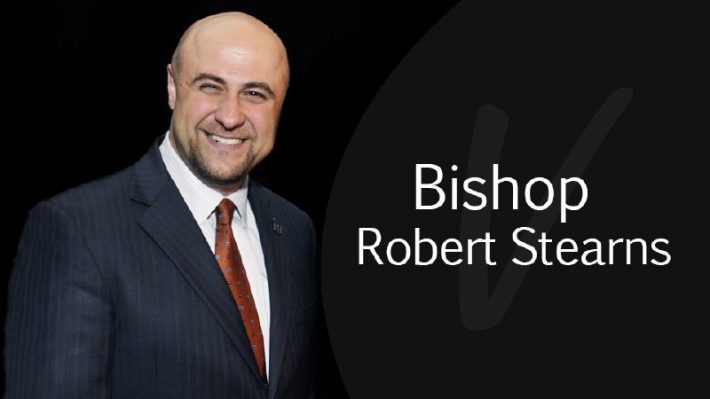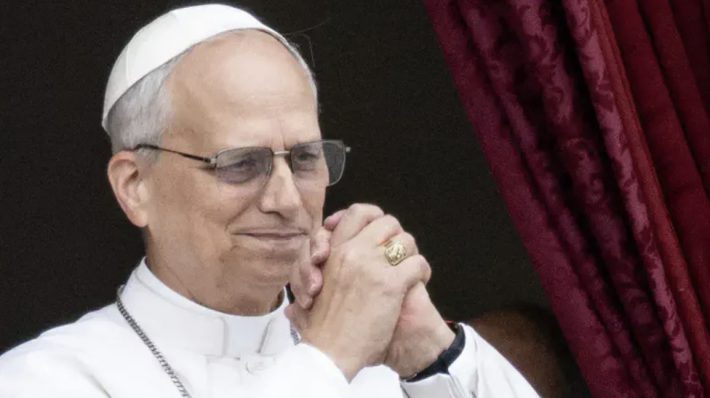Bishop Robert Stearns, founder and executive director of Eagle’s Wings, reaffirmed his unwavering support for Israel during a time of war and rising global tensions.
Bishop Robert Stearns, founder and executive director of Eagle’s Wings, reaffirmed his unwavering support for Israel during a time of war and rising global tensions. Speaking to Arutz Sheva – Israel National News, Stearns emphasized the deep connection between evangelical Christians and the Jewish state, saying: “We know who our friends are truly in the moments of our greatest need, and the state of Israel and the Jewish people have no greater friends than the evangelical Christian community around the world.”
Having led Christian groups to Israel since 1994, Stearns was in Israel during the October 7th massacre and remained in the country for days afterward. He had just concluded a visit with 46 pastors from 22 U.S. states when war erupted. “I believe that I am able to effectively communicate to the global Christian world what is happening here in Israel by being here on the ground,” he said. “We stand in friendship and solidarity with the state of Israel and with the Jewish people.”
Commenting on U.S. President Donald Trump’s decision to strike Iran, Stearns drew a historic parallel with President Harry Truman’s 1948 recognition of Israel. “Truman picked up the pen and said, ‘I am Cyrus,’” Stearns recounted. “I feel that President Trump, in a moment of existential crisis for the state of Israel, decided that he must do in the spirit of Truman what is morally right and decisive.”
Stearns called Trump’s decision an act of “decisive moral clarity,” and expressed pride in the role evangelical Christians played. “I’m so glad that the evangelical community was able to add its support and strength to the president’s inner resolve and determination to do the right thing.”
Asked about concerns over recent critical remarks by Trump regarding Israel and the ceasefire, Stearns urged patience. “A lot of these things are developing in real time,” he said. “I believe that President Trump is acting in Israel’s best interest in wanting to see a lasting peace brought forth here. His policy is always peace through strength.”
Since launching his efforts in the 1990s, Stearns has brought over 35,000 Christians to Israel. In recent years, the focus has been on younger pastors. “I grew up in an evangelical home, we were pro-Jewish, pro-Israel. But I had never met a Jew,” he explained.
Stearns described the transformation many Christians undergo when visiting Israel: “Number one, they feel that they are home. There is a spiritual sense of coming home… Number two, over and over again they say, ‘I feel so much peace here.’” He noted that even amid sirens and security concerns, some pastors said they felt safer in Israel than in U.S. cities like Los Angeles.
He also addressed how visiting Israel often dismantles media-driven misconceptions: “Within hours, the narrative of the mainstream media—‘Israel is an apartheid state’—falls away. You capture the spirit of the Israeli people, who just want to live in peace.”
Stearns issued a clear call to Christians worldwide to be vocal in their support for Israel. “The Bible talks about the watchers on the walls. We have to day and night speak out about God’s purpose for this land.” Quoting Isaiah, he said: “All nations will stream up to Jerusalem. It will be a house of prayer for all nations.”
He warned that defending Israel is essential to preserving Western civilization: “If we’re going to save the Judeo-Christian worldview that has brought human rights and dignity to every human being, then it is absolutely essential that the global Christian community finds its heart replanted into the soil of this place.”
Stearns directly confronted long-standing Jewish concerns about evangelical intentions, particularly fears of proselytization. “The Jewish community has every right to be suspicious, every right to be concerned about Christian motivation,” he said. “There are many assumptions that all Christians are missionaries, or that this is about forcing immigration before Jesus can return.”
He distinguished today’s efforts as part of a new chapter: “We are living in the day of contemporary Christian Zionism.” Stearns laid out his motivations: “Number one, we owe a debt of gratitude. The Christian faith would not exist without Judaism. Number two, we owe a debt of repentance. Horrible atrocities have been committed under the banner of the cross. And number three, we have today two shared enemies—radical Islam and radical leftist secularism.”
Despite centuries of tension, Stearns believes Christians and Jews must unite for the future: “We must understand that we’re not living in the time of the past. I believe we have to build on this foundation—gratitude for the Jewish people, repentance for what has been done, and standing together for our shared values.”





